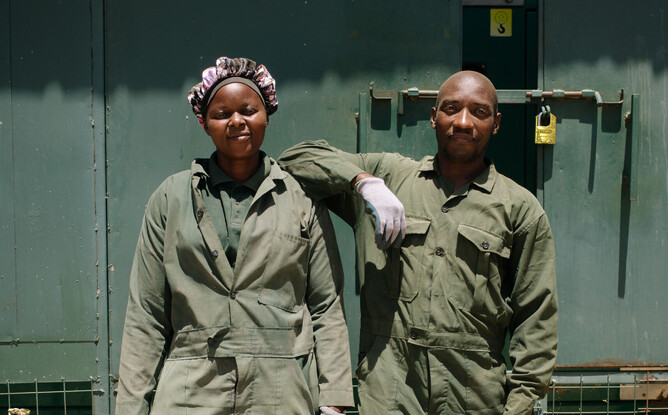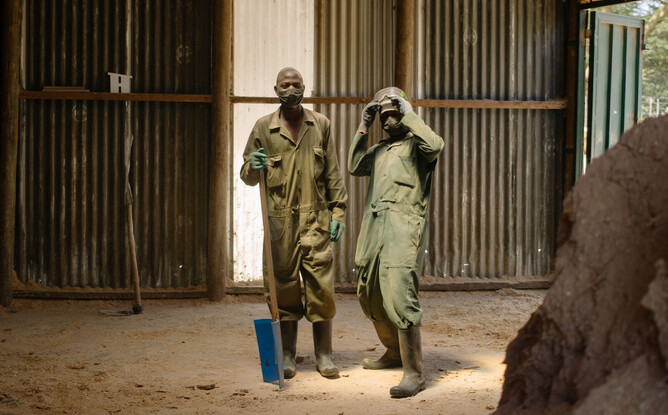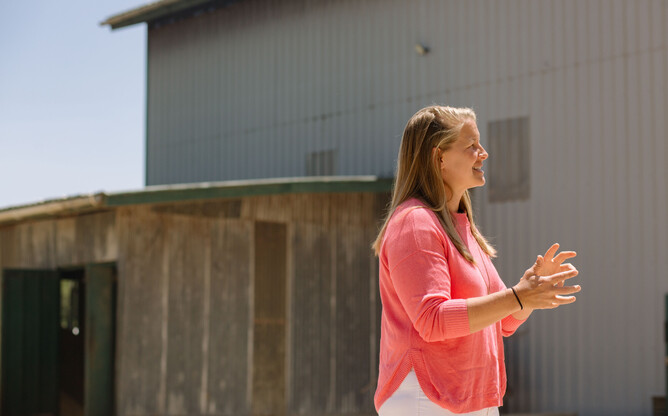Duncan and Nelly are fuel agents at Sanivation. It's their job to convert waste biomass into briquettes used for a sustainable fuel source. Before Sanivation, both Duncan and Nelly had noticed that there was a lot of waste in their communities. However, through a collaboration between Sanivation, Water Unite and local people, their communities have been transformed, becoming cleaner, safer, and more hygienic places to live.
“The community around us right now is not how we found it. It is better in terms of sanitation because a lot of waste used to find itself in the community… Removing the sludge and the dirt from the community and bringing it here is one way of making our community and our society healthy.”
Duncan – Fuel Agent
THE CHALLENGE
Poor sanitation can have devastating impacts on hygiene and the environment. Half the world’s population is living in places where waste isn’t being safely managed. In Kenya, less than 10% of human waste is treated before it is dumped in the environment. Only 23 out of 87 human waste water utilities in Kenya have treatment plants, resulting in 1.5 million cases of diarrhoea in 2018, with 9% of cases found in Nairobi alone.
Emily Woods, co-founder and COO of Sanivation, has emphasised the environmental consequences of improper waste management in addition to sanitation, pointing out that when human waste isn’t properly managed it breaks down and produces methane. A recent study in Kampala found that 70% of all their greenhouse gases were caused by improper waste management. In 2020 Kenya lost 19,000 hectares of tree cover and 90% of the firewood in Kenya is unsustainably harvested either directly for firewood or for the creation of charcoal.
THE SOLUTION
Andrew Foote was inspired to set up Sanivation after working in international development, where he saw the lack of quality solutions to the sanitation problem. To address the crisis in Kenya, Sanivation has partnered with local governments to deploy sustainable sanitation solutions.
“CO-OP and Water Unite have allowed us to partner with new local governments and take an innovation that allows cities to be clean, healthy and productive to new locations, and be able to ensure that waste is being treated properly”
Andrew Foote - Co-Founder and CEO
Sanivation designs, builds and operates circular economy treatment plants which take in sludge from pit latrines and septic tanks. This waste is treated, then combined with other waste products such as sawdust to produce a briquette. These briquettes provide a low carbon bioenergy alternative to fossil fuels, whilst simultaneously making use of the sludge that would otherwise be mismanaged.
Sanivation now has sites in 12 active cities and employs 54 local people. In 2023, Sanivation served 11,496 people by safely managing 1,134 tonnes of faecal sludge. This has allowed Sanivation to sell 605 tonnes of low-carbon fuel in 2023, saving 1,331 tonnes of CO2 and 18,075 trees.
Sanivation continues to grow its operations after receiving verbal approval from the Kenyan National Government in 2023 for its portfolio approach in three cities: Gussi, Nyahururu, and Embu. Building on this momentum, Sanivation continues to develop sustainable and scalable initiatives, as well as transparent partnerships with governments and NGOs. This enables Sanivation to keep on providing transformative sanitation solutions to communities throughout Kenya.
Photo credit to Alexander James-Aylin



